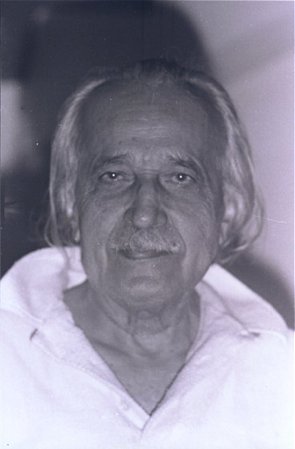Karanth is well known in India for experimentation. Most of his novels vary in theme, technique and their presentation. "Marali Mannige" (Return to the soil) deals with the theme of three A widely traveled man, he had visited several countries, besides every village in North Kanara
and South Kanara
districts, and most of theIndian states
. But world travels and great honors had not affected his simple habits, and love of nature and rural life. As the President of the thirty seventh Karnataka Literary conference held at Mysore in 1955, he declared, "It is true that a number of experiments are being tried in literature. That is the mark of a living literature. But technique, style and form, all find their fulfillment only in their power to carry to the mind and the heart of the reader, the message, emotion and vision of the writer". This was his approach throughout. In spite of being a great experimenter himself, his style is simple, clear and direct. generations of a family in the coastal village, who face hardships of life with courage and adjust to changing times. "Bettada Jeeva" (Man of the hills) depicts the extraordinary life of a"brahmin" farmer who accepts challenges of nature and wild beasts, pestering Malaria, along with differences in the family with equanimity. "Maimanagala Suliyalli"(Whirl of the body and mind) brings out attempts of a talented woman with a creative mind, to attain fulfillment of physical and intellectual cravings, and her partial success. "Alida Mele" (Life after Death) is the unraveling character of a dead person who leaves behind a vague letter with some clues to his friend the author. The saga of search for the persons mentioned in the letter, provides several insights in human mind and behavior.
Shivaram Karanth the Genius "Mookajjiya Kanasu"(Mookajji's dreams) which brought Karanth theJnanapeeth
award in 1977 deals with the visions of an eighty year old who has undergone widowhood for seventy years and innumerable sufferings but has not lost faith in life. The whole novel runs in the form of dialogues between Mookajji and her grand- nephew interspersed with her musings. Mookajji verily represents Indian Ethos in a nutshell. Karanth's respect for women is deep as seen in his female characters, all the more in Mookajji.
Besides Jnanapeeth, Karanth is the recipient of the Central and State Sahitya Academy awards, Swedish Academy Award for services to folkdance, honorary doctorates of Mysore and Karnataka universities, and many other literary and research honors. He returned his Padmabhushan honor
in protest against theEmergency
, imposed byIndira Gandhi
.
Dr. Kota Shivarama Karanth was the first person to take interest in the theoretical and practical aspects of Yakshagana . He reformed the costumes, scripts, music and other ingredients that makeYakshagana a mesmerising theatre, to suit the contemporary taste and style. At a time when traditional art forms were fast losing audience, he madeYakshagana an attractive art form, interesting to the present day generation. Dr. Karanth is one of the most arresting personalities in the literary and theatre world of India. His interests have been vast and varied. He was a great novelist, innovative playwright, unique essayist, one man-mission-encyclopaedist, cultural anthropologist, art historian, lexicographer, promoter, of science and environmentalist.
Besides honorary doctorates from several Indian universities and fellowships from two national academics – the Sahitya Akademi and the Sangeeth Natak Akademi, he has received the prestigious Janapith award in 1978, Dadabhai Navroji award and Tulsi Samman in 1990. He has written 150 books in Kannada and English. His works have been translated into several Indian languages and filmed as well. Among all his achievement, his contribution to Yakshagana the Indian theatre form is singular.

























0 comments:
Post a Comment